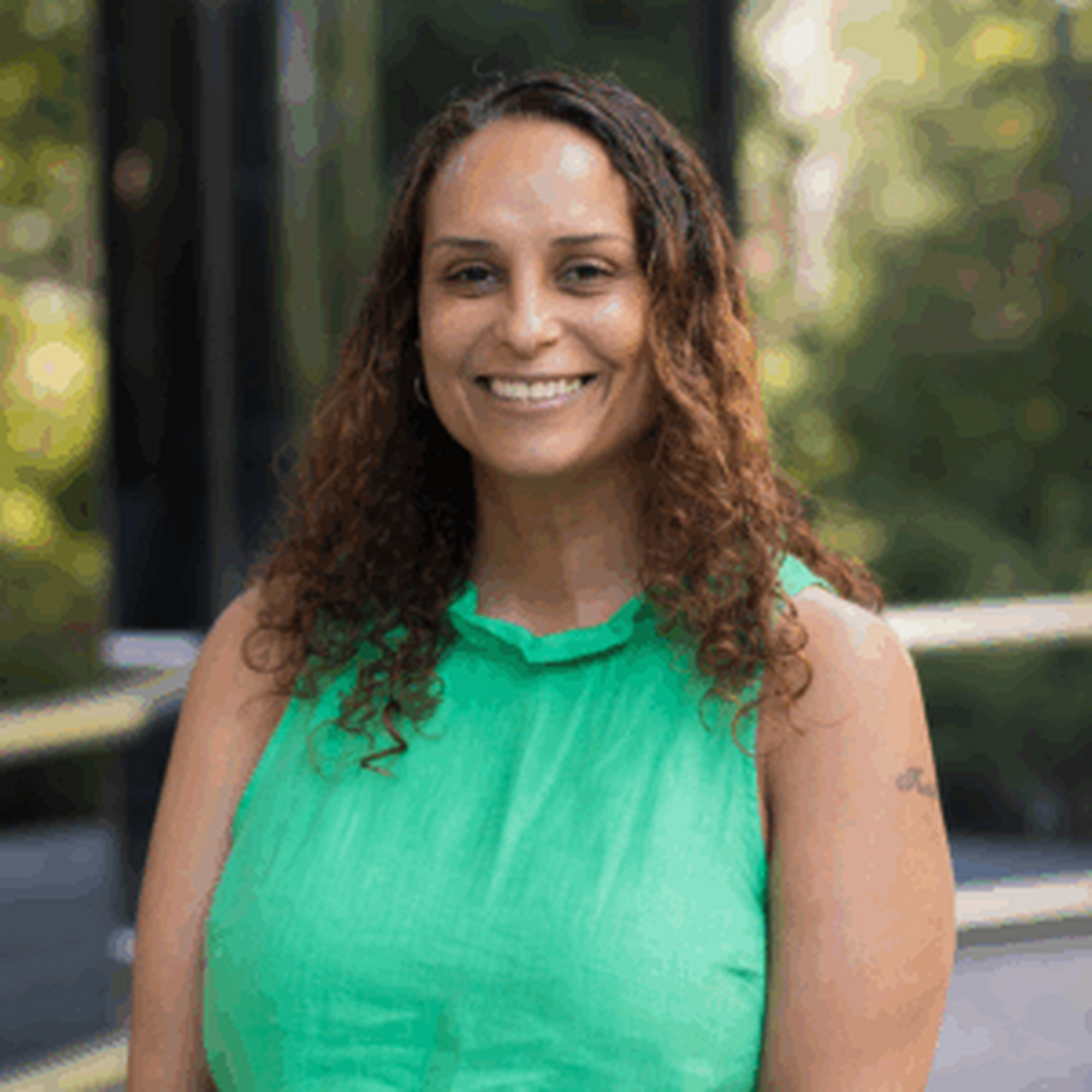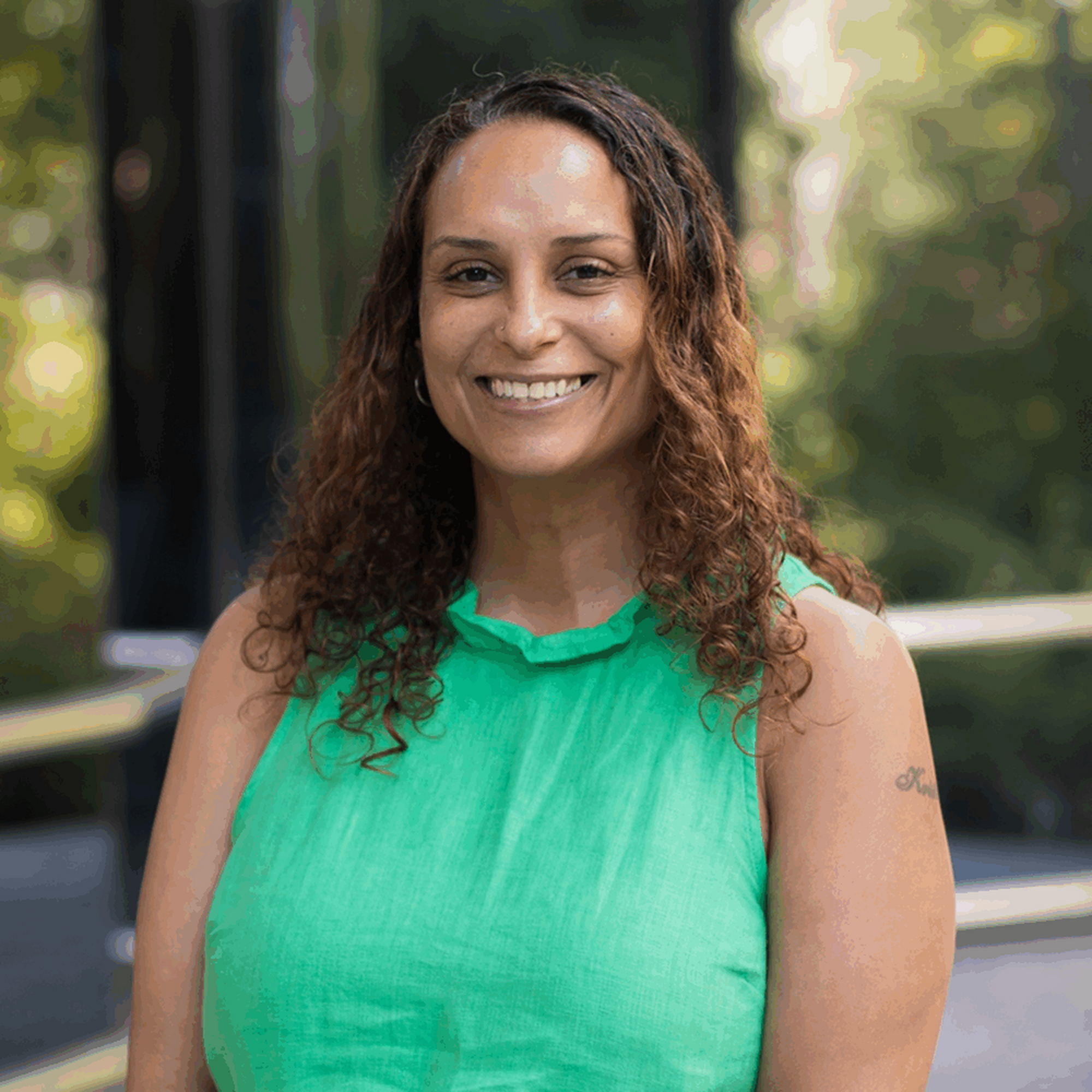Kristie Puckett is a policy expert on the conditions of confinement for women, mothers, and girls. She consults for and advises several groups, and serves as chair of the Women in Incarceration Workgroup for the North Carolina State Reentry Council Collaborative. It was her direct experience with poverty, addiction, and incarceration that led her to advocate for marginalized and disenfranchised women.
Puckett was the mother of a young child when she was charged with drug trafficking. She struggled with an addiction that numbed the physical and emotional pain of domestic violence. She was also in the first few months of pregnancy. The judge ordered a bond of $167,000. This was far out of reach of what she and her family could pay, so Puckett went to jail for nearly six months as she awaited trial. During that time, she received no prenatal care, putting both herself and her pregnancy at risk. In fact, because of this lack of care, Puckett didn’t know she was carrying twins until she gave birth. Puckett’s experience epitomizes many of the difficulties women face in the criminal legal system.
Women in Criminal Legal Systems

The situation of women in American society is historically unbalanced. Women constitute the vast majority of single parents, are often the primary caregivers in their families, and earn 22 percent less overall than their male counterparts in the workplace. In addition, more than 80 percent of women report experiencing sexual harassment or assault.
These statistics are amplified in criminal legal systems. Nearly 80 percent of women in jail are mothers, and 86 percent of women in jail have experienced sexual violence. In recent decades, the incarceration of women has grown at twice the pace of men’s incarceration, an increase seen mostly in local jails. More than three-quarters of criminal charges against women are for property, drug, or public order offenses, not violent crimes.
The incarceration of women is an identified adverse childhood experience for their children, resulting in lifelong negative effects on their health and well-being. Children of incarcerated women must often stay with other family members or be put into foster care, adding to their trauma and disrupting their mental and emotional development.
Women in the Pretrial Process
Puckett’s excessive bond is common. Bond amounts for felony charges can range from $10,000 up to millions of dollars. Research shows that women who are unable to pay a money bond have an annual median income of just $11,000. This makes most bond amounts unattainable, and increases the likelihood that these women will be detained while their cases progress.
To learn more about the experiences of women in the pretrial period, staff at the Center for Effective Public Policy (CEPP) reviewed relevant studies and literature, and conducted surveys of directly impacted women, gender-diverse people (those whose gender identity or gender expression does not conform to socially defined male or female gender norms), and system stakeholders. Their work led to two central conclusions:
- The typical pretrial process does not allow people—particularly Black and Brown women and gender-diverse people—the chance to discuss their situations and advocate for themselves.
- Legal and court systems do not do a good job of explaining the pretrial process, and tend to disregard individual situations.
These lessons underscore the need to develop a “participatory pretrial” approach. This provides people with opportunities to discuss their life circumstances—including family, work, health, and housing—and takes into consideration the unique needs of women, encouraging their input and addressing their various societal and familial roles.
“We need to interrupt the increase in the number of women being held in jail,” said Erica King, senior manager with CEPP. “Most are held in jail because they can’t pay a financial release condition, and then have more fees and charges, which is a further trap for families living in poverty. This hurts American families. Most fines and fees are absorbed by women, even if they didn’t commit the act. Not having policies or any effort to interrupt the pattern is damaging.”
“Most fines and fees are absorbed by women, even if they didn’t commit the act. Not having policies or any effort to interrupt the pattern is damaging.”
Participatory Pretrial Toolkit
CEPP used the information gathered to develop the Gender Justice Pretrial Toolkit. With easy steps to bring gender-sensitive approaches to the pretrial process, it includes a judicial bench card, resources for women and gender-diverse people in the pretrial process and pretrial service agencies.
The judicial bench card is a simple checklist for judges to use when determining release conditions for people charged with a crime, and is a visual reminder to consider the individual circumstances of the person before them, including family unification, types of community support or rehabilitation, housing, trauma, and gender or gender identity.
The resource for women and gender-diverse people in the pretrial period prompts people facing criminal charges to assess their situation so they can identify potential barriers and ask for the support they need. It encourages consideration of elements such as where they sleep or receive mail, their transportation and online communication tools, their support systems, their employment and school obligations, and their caregiving responsibilities. Thinking through this information can help people better understand how pretrial requirements may impact their lives.
The resources for pretrial service agencies include a brochure written in simple language to help people charged with a crime better understand the process, including their responsibilities. Also included is a basic intake form for gathering information about race, gender, gender identity, pregnancy, family responsibilities, school/work, transportation, and more. It also provides information on community resources related to housing, mental health care, employment, substance use, and medications. Another new resource from CEPP is Make Every Interaction Count (pdf), a desktop guide designed to support effective professional interactions with women during community supervision sessions.
Implementing Gender Justice at the Pretrial Stage
One key component of implementing gender justice for pretrial services is to allow people to tell their stories and advocate for what they need. “If people are given the opportunity to be heard by their defense attorney or have things explained to them, they feel better about the process, and the impression of fairness will increase their compliance,” said Allison Shames, CEPP’s director.
“By removing women from the family, we’re disrupting the future.”
Another essential aspect of gender justice is to explain the pretrial process, set expectations, and address individual needs.
King suggests that departments look at data trends in their populations and, based on their findings, set aspirational targets to address gender justice issues. Jurisdictions may implement gender justice pretrial services in different ways. For example, after tracking data, a team may set goals to improve performance, or assign employees to work with women and gender-diverse people who have been charged with crimes, and try to better understand the issues these people face.
“It’s very valuable to have a gender justice approach in pretrial services. We have the freedom to individualize services,” said Jennifer Gibbs, with Criminal Justice Alternatives in Wake County, North Carolina. “With women, we talk about barriers in getting people to court. Whatever barriers someone might have, whether childcare or other issues specific to women, we try to strategize around that. We have very little wiggle room in monitoring court-ordered conditions. It’s just how we can support people in the best way possible, so a toolkit like this is a deeply valuable resource.”
Investing in pretrial gender justice is an investment in healthier communities for the long term—keeping families intact, helping people receive treatment, and reducing trauma experienced by children.
Puckett accepted a plea deal just in time to give birth to her unexpected twins. Knowing that finding a job was going to be difficult with her record, she enrolled in college and eventually completed graduate school, leading to her career in advocating for women in the criminal legal system. “We have to honor the role that women and girls play in society,” she said. “By removing women from the family, we’re disrupting the future. If they are to be locked up, it should be the last resort. The harm that it causes is greater than the benefit of locking them up.”
About the Author
C.C. Strom is a writer and communications consultant based in Minneapolis. She’s committed to telling the stories of nonprofit organizations and building stronger communities.

